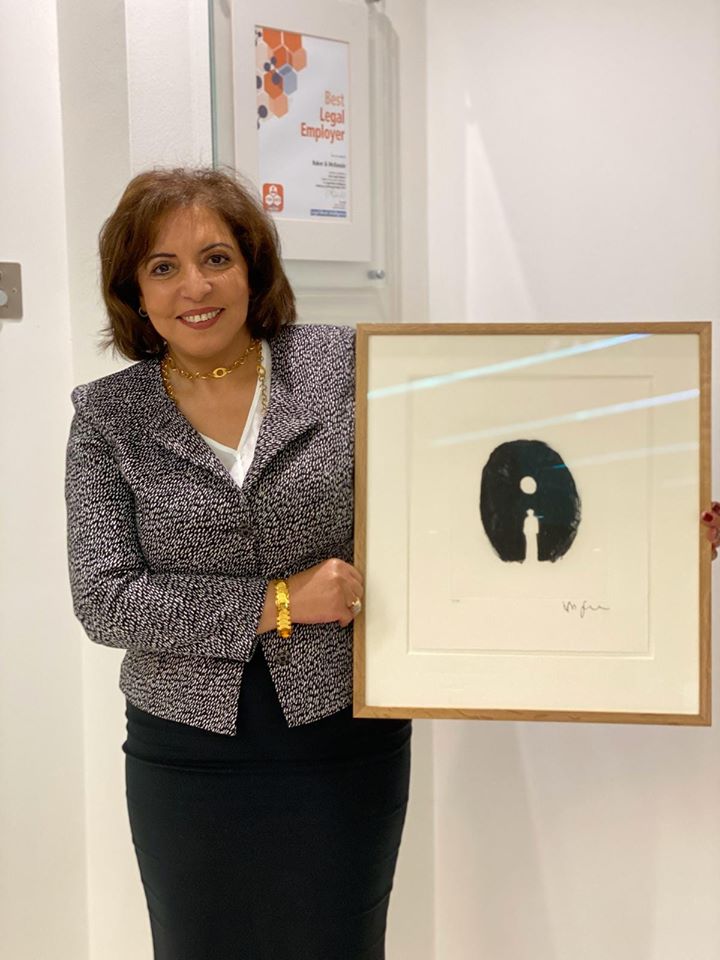
 2020-02-24
2020-02-24
Tamkeen wins the Thomson Reuters Stop Slavery Impact Award
In a ceremony that was held in London on Thursday, February 20th, 2020, Tamkeen for Legal Aid and Human Rights was announced as the winner of the Thomson Reuters Stop Slavery Impact Award.
Linda Al Kalash, the Executive Director of Tamkeen said that they received the award due to the numerous programs and projects that the organisation has implemented to combat human trafficking and help the victims.
She added in her statement that 18 candidates have competed for the award, in its different categories who all have a proven track record in their efforts to combat modern slavery.
The categories of the award include: The Stop Slavery Innovation Award, the Campaigns Award, the Collaboration Award, the Impact Award, the Hero Award, the Media Award, and three awards that focus on enterprises; one awarded for Goods and Companies, one for Service Companies, while the last one is awarded for Small & Medium Sized Companies.
Tamkeen was awarded the Stop Slavery Impact Award for its efforts to achieving policy and legislation change that “resulted in positive impact in the fight to eradicate slavery.” The Stop Slavery Award is a print conceived by Turner Prize-winning artist Anish Kapoor especially for this initiative.
Kalash added in the statement that the evaluation process included a number of criteria that were related to each organisation’s work on the ground as well as their overall goals and the extent to which these efforts contributed to combatting Modern Slavery and Human Trafficking.
She also highlighted that the crime of Human Trafficking is extremely complex, thus making it harder to detect compared to other crimes. The causes of it are also intertwined with many factors, whether political, economic or social. She also stressed that even though the victims of the crime could come from all walks of life and backgrounds, the most vulnerable to trafficking are women.
Kalash pointed out that Tamkeen receives many workers, whether Jordanians, refugees or migrants, whose rights are violated. In relation to Migrant Workers though, she mentioned that many of them are deceived before they even arrive in Jordan, with regard to their working conditions, or due to the differences in their work contracts that they sign in Jordan in comparison with those that they previously signed in their country of origins. Such deceptive actions require the presence of organisations that provide protection and prevention services through specially-tailored programs that support efforts to promote human rights. It is equally important to find and define effective solutions to achieve real change for the rights of migrants, as well as the rights of victims of human trafficking and forced labour.
At the end of her statement, Kalash said that this is the third time in which Tamkeen’s efforts have been recognised on the world stage in relation to their efforts to combat Human Trafficking. In 2010, she herself was named a “Hero in the Fight against Modern Slavery” by the US Department of State. The second recognition Tamkeen received was in November 26th, 2011 when the organisation was chosen as one of five NGOs that won the prestigious French Republic Human Rights Prize.
The statement came after Kalash received the award during the award ceremony that was held in London.
It should be mentioned that the Stop Slavery Award was launched by the Thomson Reuters Foundation in 2015 to recognise companies who can be considered "best in class" based on the policies and the processes they have in place to limit the risk of slavery in their supply chain and operations, as well as the role they are playing as key agents in the global fight against slavery.
In 2018, the Thomson Reuters Foundation expanded the award to take into account the range of companies that had applied in the previous two cycles, creating distinct and tailored questionnaires for Service Companies and Goods Companies.
In 2018, the inaugural Stop Slavery Hero Award was launched to recognise individuals who have had a positive impact in the fight to eradicate forced labour from supply chains – whether on a local level touching the lives of vulnerable people and communities, or on a global stage changing policies that have the potential to affect the lives of millions.

